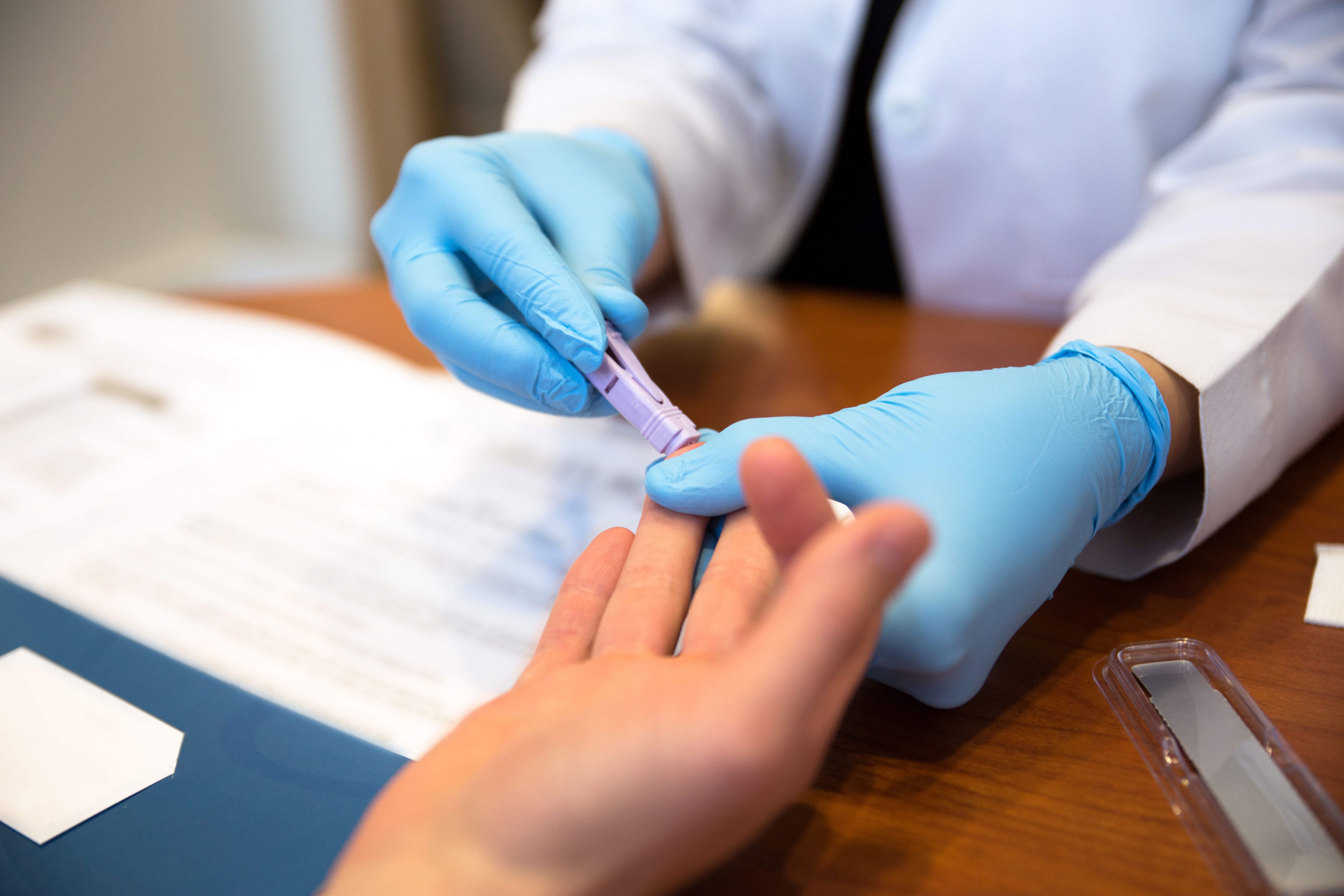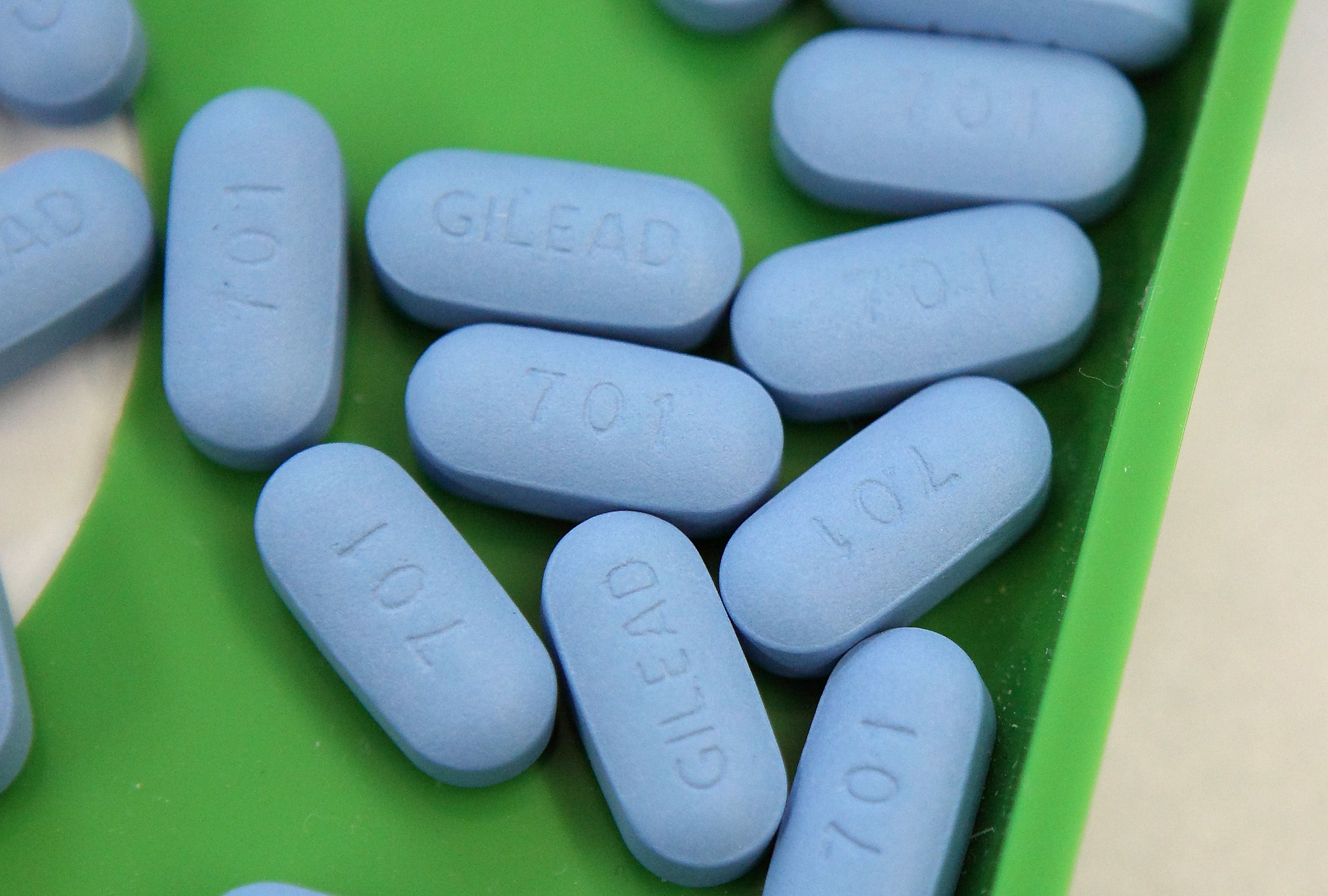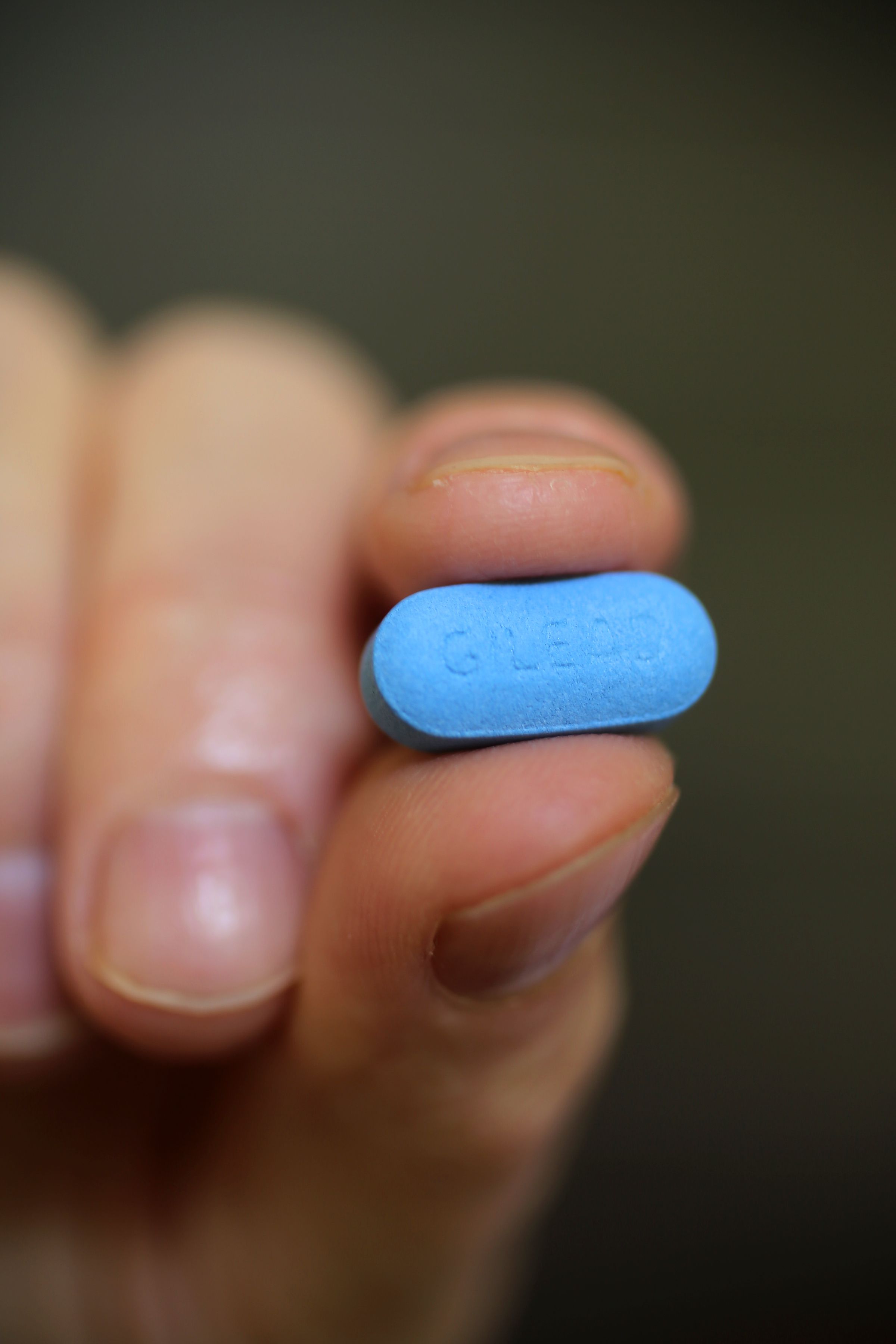You may think you know the facts when it comes to HIV, right? Well, think again: A study of almost 2,000 people published in BMC Public Health found that almost half had incorrect knowledge about HIV transmission and AIDS. Worse, men were more likely than women to have the wrong information.
Here’s a quick refresher: HIV can be dangerous because it attacks the immune system hard. “HIV kills a particular kind of immune cell called CD4 T cells, which, once it’s killed enough of them, makes us vulnerable to getting infections and cancers,” says Stacey Rizza, MD, an infectious disease specialist at Mayo Clinic. Left untreated, HIV can progress into AIDS.
Advertisement – Continue Reading Below
While HIV is a manageable condition, it’s something every guy should have a solid understanding of, because anyone can get it. Here are 9 things you didn’t know about HIV and your risk of transmission.
HIV does not discriminate by race or gender.
Though gay and bisexual men do have the largest number of new HIV diagnoses in the United States, anyone can be infected with the virus — women, older people, and heterosexual people included, notes Rizza.“[Men who have sex with men] continue to be most affected by HIV in the United States,” she says. “But essentially, everybody else is at risk as well.”
That’s why Rizza suggests always using condoms, regardless of your gender or sexual orientation. If you enter into a monogamous relationship, make sure you and your partner are tested for HIV before deciding whether or not to stop using protection.
2. Many people who are HIV-positive do not have symptoms.
“Most people who get HIV may have what feels like a viral illness at the beginning, kind of like the flu or a cold. But others feel nothing at all,” Rizza says. “People can live with HIV for years or even decades with no knowledge that they’ve been infected.”
Advertisement – Continue Reading Below
Dr. Carlos Malvestutto, MD, MPH, infectious disease expert at The Ohio State University Wexner Medical Center, says that during acute infections (days to weeks after exposure to HIV), some people will experience some general symptoms, but for the most part they’re mild. You may experience enlarged lymph nodes, rash, sore throat, etc., but it’s easy to mistake these symptoms for a bad cold or flu.
“People may remain asymptomatic for a long time, but in the meantime their immune systems continue to weaken,” he explains. “Some people will not get tested for years until the point where the immune system is so debilitated that you’re at risk of opportunistic infections caused by bacteria, viruses, fungi, etc.”
That’s why it’s incredibly important to get tested. The Centers for Disease Control and Prevention (CDC) recommends that everyone ages 13 to 64 get tested for HIV at least once in their life, or once a year if you are at increased risk (if you’re an intravenous drug user, say, or if you have had multiple sex partners since your last HIV test).
3. If you’re at high risk, you can take measures to lower your risk.
If you’re at high risk of getting HIV (say, if you’re in a relationship with someone with HIV), you can take pre-exposure prophylaxis (PrEP), which can dramatically decrease your chance of getting HIV. PrEP essentially stops HIV from spreading throughout your body. When taken regularly, it reduces your risk of getting HIV via sex by more than 90 percent.
Advertisement – Continue Reading Below
Advertisement – Continue Reading Below
Right now, Truvada (PrEP) is the only FDA-approved drug for preventing HIV infection, but Malvestutto says that current research and clinical trials are underway for alternative forms of prevention, such as an injectable that won’t have to be taken daily. If you’re concerned about the cost of PrEP, Malvestutto says that PrEP is covered by most insurance plans.
“For insurance companies, it makes more sense for someone to be on PrEP than to be treated for HIV later on,” he says. Check out the risk factors that make you a good candidate for PrEP here.
4. If you or your partner has another STI, your risk of contracting HIV goes up.
Having another STI (such as gonorrhea, chlamydia, syphilis, HPV, or herpes) makes it more likely to both get HIV if you come into contact with the virus, and transmit HIV if you have the virus already. “Any kind of breakdown in the mucosa or skin can make it more vulnerable for the virus to get in,” says Rizza.
Why is this the case? Even if you don’t have any visible sores or symptoms, STIs can increase inflammation, upping the number of cells that HIV can target. “We’ve known for a while that if you have certain ulcerative STIs like herpes, it raises the risk of acquiring HIV because there is inflammation and irritation and it’s easier for a virus to be transmitted,” Malvestutto says. That’s why you should ask your doctor or nurse to test you for HIV in addition to all other STIs. “Sometimes, someone comes in with an STI-related complaint and gets treated for them, but for some reason they won’t be offered an HIV test,” Malvestutto notes.
5. Yes, you can get HIV from oral sex.
Anal and vaginal sex are two of the main ways that HIV is transmitted, says Rizza. But it can also theoretically be transmitted via oral sex, particularly if there are open sores on the mouth, vagina, or penis, though the risk of this happening is fairly low. “Anal intercourse is the highest risk, vaginal intercourse is next, and then oral is the least likely,” she notes.
Advertisement – Continue Reading Below
HIV can also be transmitted via sharing needles or getting a tattoo, though the CDC says there are no known cases of anyone getting HIV from a tattoo in the U.S. “If people get tattoos, we recommend they go to a parlor where all of the dye is thrown out between people and all of the tubing is autoclaved and the needle is changed,” says Rizza.
6. Proper treatment can significantly reduce your chance of infecting others with HIV.
Gone are the days in the United States when HIV was thought of as a death sentence. If you are HIV-positive, you can take a combination of medications known as antiretrovirals, which can help reduce your viral load (basically, the amount of HIV in your bodily fluids) to zero.
When taken consistently over at least six months, antiretroviral therapy can often render the virus undetectable in your system. “Our treatments are so potent that even if someone has a high viral load, we can get it from a million to 0 in a few weeks,” says Malvestutto. “The vast majority of my patients reached undetectable in 3 months.”
If you have an undetectable viral load, it greatly reduces your chances of transmitting HIV to someone else. But you should still wear a condom if you and/or your partner has not been tested for other STIs.
Advertisement – Continue Reading Below
Advertisement – Continue Reading Below
7. In some states, transmitting HIV to someone else is a crime.
In many states like Michigan and Mississippi, knowingly transmitting HIV to someone else is punishable by law and considered a felony. But Malvestutto believes these laws ignore recent developments in HIV treatment. “The laws in place have nothing to do with the science, which is a huge issue,” he says. “In some states, you can be penalized for having sex with someone who accuses you of having HIV, which makes no sense because if your HIV is suppressed then [it’s close to impossible to] transmit it.”
Malvestutto believes these laws only serve to instill fear in people. “If someone thinks they have HIV, they won’t get tested because they won’t want to run into issues with the law. And we would rather have people disclose their status to each other,” he continues. “The majority of cases of transmission are from people who are unaware of their status, and these laws discourage testing.”
8. HIV diagnoses are on the rise among African American men who have sex with men in the southern United States.
According to CDC data, while the overall risk of HIV infection has gone down over the past few years, it has gone up for one specific group: African American men who have sex with men, particularly in the South. Malvestutto speculates that this may be due to lingering stigma surrounding gay and bisexual men in the black community. “For white men in San Francisco, it’s much easier to discuss sexual orientation and sex practices. This is still not the case for African Americans in some parts of the country. That stigma permeates the whole thing,” he says.
9. Many people with HIV don’t know their status.
Because many people infected with HIV don’t exhibit symptoms, they end up not getting tested. As a result, “we still have a significant population who are unaware of their status,” notes Malvestutto, citing a CDC estimate that 15% of people living with HIV don’t know they have it. “While that has decreased gradually over the years, even some healthcare providers, won’t discuss risk or offer tests…there’s an important need to get the word out that HIV testing is important and that it should be normalized for everyone as a part of everyone’s general health.”



